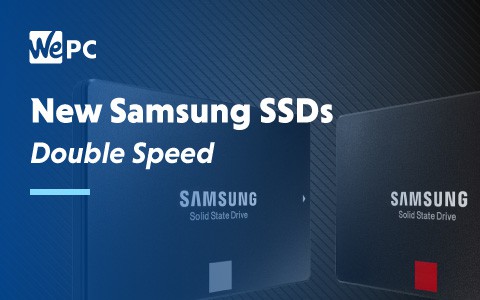Good news for Samsung fans. Samsung’s solid-state drives (SSDs) look like they’re going to become a lot faster.
While Samsung already has some great SSDs out there, but they’re now introducing two brand new SSD series that will take the market to the next level. These new SSD series, called PM1733 and PM1735, will use the new PCIe 4.0 interface for increased throughput.
19 new SSD models are on the line and will come in two form factors, PCIe add-in card, and a 2.5-inch U.2 type. Storage capacities in each style will range from 800GB to 30.72TB.
Samsung claims that sequential writer speeds will be on all their new drives, hitting a rate of 3,800 MB/s. Going further, Samsung also says their read speeds can hit 6,400 MB/s.
This comes into direct competition with AMD’s Ryzen 3000 CPUs.
Who are the SSDs aimed at?
With high tech and better performance, there’s always a hefty price tag attached. Unfortunately, we can’t really say that’s any different here. In most cases, these SSDs will be a better fit for those in business or enterprise environments, rather than for personal use.
Samsung says they can see them being applicable in servers, with the high sequential speeds having more to offer those who really need that high performance rather than your average computer user.
However, Samsung is working to introduce special features that may make the new SSDs more suitable for workplaces. These new SSDs will feature a “fail-in-place” feature that will keep them running, even if a NAND chip fails on the drive. This fail-safe results in the SSD copying over whatever data it needs to in order to free space on the drive.
A virtualization technology on the drives has also been announced. This is to allow them to create up to 64 smaller SSDs for virtual workspaces. Alongside this, Samsung has worked to incorporate machine learning too, to further improve the reliability of the drives.
When will we see Samsung’s SSDs on the market?
Samsung has not given a date for commercial availability yet. They also haven’t mentioned when the general public might get to use Samsung’s innovations surrounding SSD speed and reliability. So, this is, unfortunately, something we’ve just got to be patient about in the meantime.

